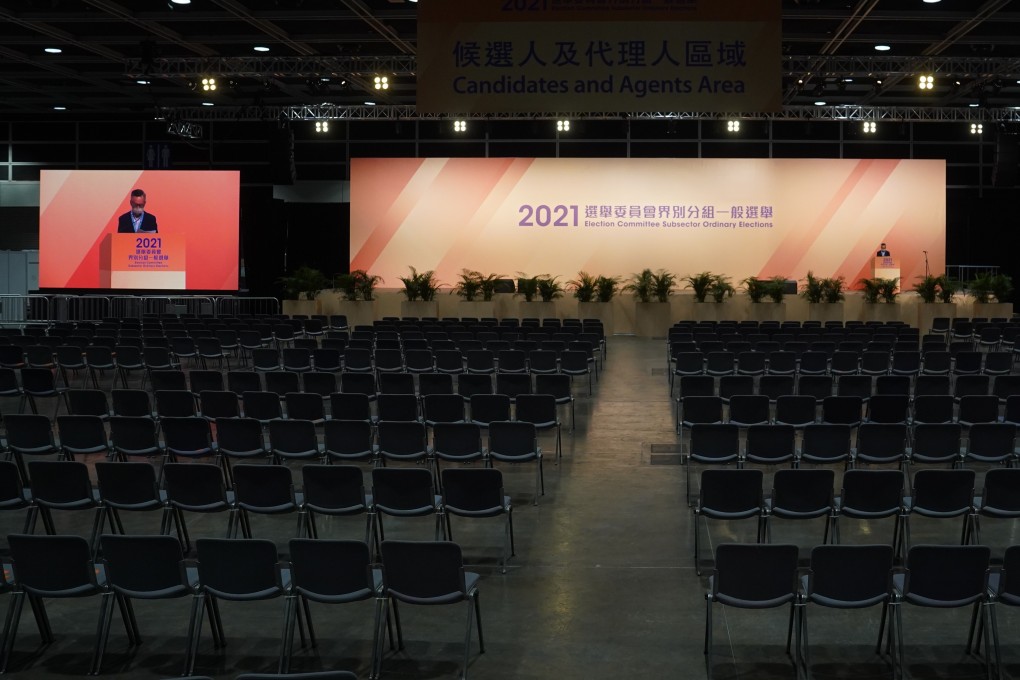Hong Kong elections: ‘Patriots’ may have triumphed, but ‘lazy’ candidates shouldn’t take seats for granted, Beijing adviser says
- Tian Feilong, a mainland Chinese academic, acknowledges Sunday’s Election Committee race was ‘not competitive enough’
- In particular, winners who did not even bother to include their platforms in their nomination paperwork have ‘undermined the legitimacy of the revamped electoral system’, he adds

Noting that many hopefuls in Sunday’s Election Committee race did not even bother writing down their stances in the space provided on the nomination forms, Tian Feilong, an associate professor at Beihang University’s law school in Beijing, suggested such candidates should be ousted in future elections through coordination within the pro-establishment camp.
Tian, who advises the central government on Hong Kong affairs, admitted that the Election Committee poll was “not competitive enough”, but blamed the issue on the opposition camp, which by and large stayed away amid new vetting measures put in place to ensure candidates were sufficiently patriotic.
“Opposition groups, such as the Democratic Party, are to blame for the lack of genuine competition by shunning the election,” he said. “Voters would have more choices if more candidates from the opposition camp ran.”
However, Tian also acknowledged that Beijing’s top priority had been blocking opposition politicians from winning seats in the city’s political institutions, a goal Sunday’s election largely achieved.
As part of Beijing’s radical shake-up of the city’s electoral system, the Election Committee – originally tasked only with picking the chief executive – was expanded by 300 seats to 1,500, and empowered to both nominate candidates for the Legislative Council and pick 40 lawmakers of its own, some or all of whom can come from within its ranks.
Only one of the two opposition-leaning candidates who ran in Sunday’s poll actually won a seat after prevailing in a tiebreaking number draw.